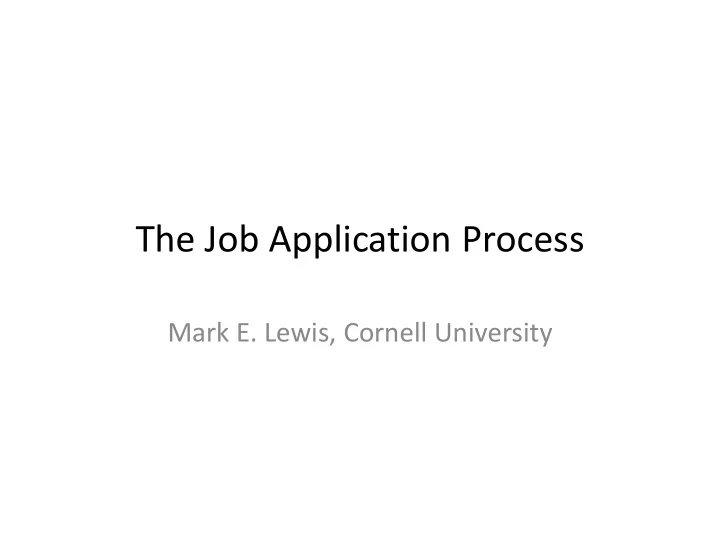

The Job Application Process Mark E. Lewis, Cornell University
Basics • Where should I apply? – Advisor should help – iefaclist – JFIG listserv – Peruse web sites (departmental and area specific) – Departmental focus – Geographic location – Unconventional ways • Attend INFORMS seminars • Attend departmental seminars (meet for lunch)
Curriculum Vitae • Starts with your contact info • Should include – Education (THESIS ADVISOR) and Relevant coursework – Presentations at conferences or other universities – Awards – PUBLICATIONS and FUNDING (even applied for) • Might have a long and short version
Research Statement • Should include what you have done in your thesis • Should relay what you plan to do next • If you have made some connections (with companies, etc.), mention them • Can you separate yourself from your advisor? • Position yourself within the department – open areas, senior faculty connections • Leave “cutesy” stories out • If you can set this up to tie it in with your teaching all the better
Teaching Statement • Conjecture – more important in B-schools (but important to engineering schools too) • Could identify courses you could see yourself teaching (at all levels) • Mention gaps in the curriculum you might fill • Do not overdo it • Connect to research
Reference Letters • Choose letter writers carefully – “big names” are not always the best • Ask your thesis advisor…unless • Provide letter writers with papers you have written and (preferably) your research statement • If possible, tell them why you chose particular schools
Bonus Material • Do not get offended if you do not get all of the interviews you wanted • You only need one job…find the one that fits • Always stay on your game…you never know when you are being interviewed • If you are an international student, ask your letter writers to assess your English
Recommend
More recommend